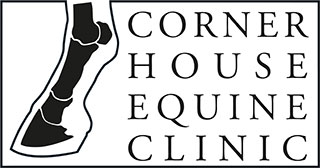Why do we need to rasp horse’s teeth? Sharp enamel points develop on the buccal side (cheek) of the upper premolars and molars and the lingual side (tongue) of the lower grinding teeth. This is due to the fact that the upper jaw is 15% wider than the lower jaw and the teeth are worn down during the horses lifetime by grinding action of chewing and the silica contained within grass and hay. The cheek teeth continue to erupt during the lifetime of the horse until they are worn away or fall out due to dental disease.
The sharp enamel points in a ridden horse cause ulceration to the cheek and tongue which in turn causes discomfort. In ridden horses having a bit in their mouth and a flash or tight noseband will push the soft tissue structures into the sharp points and cause discomfort and resentment in the horse.
Horses in the wild survive without dentistry – why is that?
In the wild the horse will eat for 18 hours a day and will continually grind/wear the cheek teeth down. It never has a bridle on and can open its mouth and carry its head wherever most comfortable when it is cantering. Also horses in the wild will not survive with dental disease so as a result of natural selection only horses with good dental makeup/conformation will breed and survive. In contrast, domesticated horses are bred for looks, speed, movement etc and as a result we encourage the progression of a host undesirable Genetic traits i.e. parrot mouth, boxy feet, umbilical hernias, undescended testes etc.
Pleasure and competition horses
Regular and thorough dental examinations are important in maintaining the health and performance of your horse. Signs of dental disease are varied:
- Difficulty in chewing, dropping food (quidding) drooling saliva or trying to eat and stopping abruptly.
- Halitosis or bad smelling breath.
- Nasal discharge especially from one nostril.
- Weight loss especially in older horses.
- Swelling in lymph nodes under the jaw.
- Reluctance to have a bit in the mouth.
- Poor head carriage and opening the mouth when ridden.
- Occasionally there can be facial swelling or pocketing of food in the cheeks.
- Common reasons for horses to present with oral discomfort
Sharp enamel points (as discussed) with ulceration of the soft tissues. Easily corrected with routine rasping, or use of motorised dental equipment. Once the points have been rounded off the ulcers will heal very quickly, sometimes salt is added to water as an antibacterial agent.
Periodontal disease: infection in the tissues immediately around the tooth leading to loose teeth (very painful when chewing). This can be improved with antibiotics and by taking the tooth out of occlusion with motorised burring of the opposing tooth (it is not involved with chewing for a short period). Occasionally in advanced cases the tooth is removed under sedation or under general anaesthetic.
Retained deciduous teeth: (caps) Occasionally young horses fail to effectively shed their ‘baby’ teeth and the retained temporary tooth or cap causes difficulty in chewing. This will often present with bad breath and cured by removal of the offending tooth with a special forceps.
Fractured teeth: Often presents with quidding weight loss, more common in middle aged and older horses, may involve the crown only or may extend down to the roots of the tooth. If the root of a tooth is infected (apical disease) there may be nasal discharge as the tooth roots of half of the upper teeth are as in the maxillary sinuses. With lower teeth there may be swelling on the jaw bone.
Schooling problems are commonly caused with wolf teeth (1st premolar teeth) especially if there is only one tooth and it is unstable. Large wolf teeth as seen in cobs are very stable and usually do not cause problems. Wolf teeth are removed under standing sedation.
Hooks and ramps; Horses with over bite or parrot mouths can have large hooks on the upper 1st cheek teeth and large hooks or ramps on the last lower cheek teeth – these are ground down with electrical/motorised dental burrs.
Accentuated transverse ridging: Deep and multiple ridges in the molar teeth can make it difficult for a horse to work on the bit with a flash in place – so this is important in dressage and eventers. This is routinely corrected with a motorised disc burr.
If you have any specific dental queries please contact Robert Walsh on info@cornerhousevets.com.

